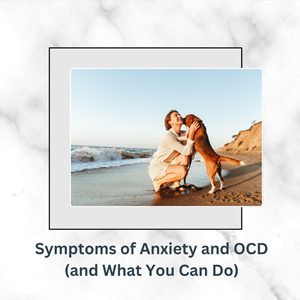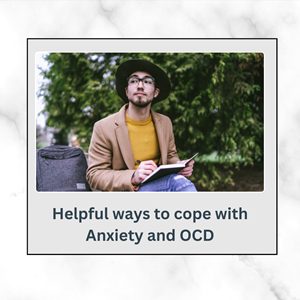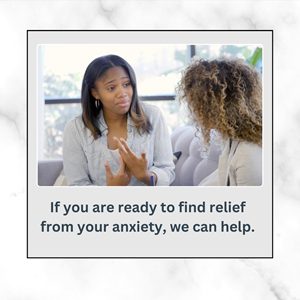 You’re on the way to a job interview when all of a sudden, the burner!
You’re on the way to a job interview when all of a sudden, the burner!
You don’t remember shutting off the burner on your stove.
You feel the prickly wash of panic charge through your body as you frantically cobble together memories, searching desperately for a specific one: you shutting off the burner.
The memory’s nowhere to be found.
Instead, you’re thinking of the pan. You feel your panic escalate. Did you wash and put away the pan or is it still on the burner?!
Your mind catapults into the worst-case scenario. At this point, the pan would have caught fire. You can practically see the flames as they grow, tickling the upper cabinets as thick choking black smoke starts filling the kitchen.
Your pets!
You can’t take it anymore, you’re shaking.
Do you go home to check the burner and arrive an unacceptable 30 minutes late for your interview? Or do you grit your teeth—try and quell the panic—and arrive on time?
What’s the Difference Between Anxiety and OCD?
One of the common ways both anxiety and OCD manifest is through intrusive thoughts. The kind of thoughts that make your body react. The kind of thoughts that lead to a ton of cortisol being released, as you clench your jaw and shoulders, and that whoosh. The sensation of seemingly being sucked out of reality and the present moment, and catapulted into what feels like a frantic life or death scenario.
The intrusive thoughts, coupled with the body reacting as if the thought is actually true, is powerful. It’s overwhelming and ultimately exhausting—to say the least.
When OCD enters the picture, it takes things a step further.
Anxiety tends to stay in the mind and while it often puts limits on the things you do, OCD exerts a greater influence on behavior.
Have you ever returned home 10 minutes after you left, just to make sure the front door was locked? Or when traveling internationally do you compulsively check your purse to ensure your passport is still there? Are you bothered (more than you think you should be) by things that aren’t symmetrical—a picture that’s slightly crooked on the wall?
OCD symptoms can range from mild to severe. On the severe end of the spectrum, these symptoms totally consume lives. Rendering people suffering from them housebound. Engaging in all sorts of rituals such as excessive handwashing, extreme germaphobia, counting, trying to counteract intrusive disturbing thoughts, essentially living as prisoners of their own mind.
While the jury’s still out on the causes of OCD (environmental? Biological? A little of both?) many experts agree that anxiety stems from difficult experiences, especially stress or trauma during childhood.
As crippling as each of them feel—especially when they join forces to seemingly torment you—there are things you can do.
Reframing Perspective to Manage Symptoms of Anxiety and OCD
One way to frame it is by getting to the point where anxiety and OCD lose the ability to consume you. You want to get to a point where they don’t really phase you anymore.
With that in mind, it’s also important to note that unpleasant emotions and feelings are a normal part of being human. While it’s possible to lessen the drama and not let it totally overwhelm you, anxiety and OCD may still pop in from time to time, surprise! —uninvited.
Another thing that’s important to remember is oftentimes, these less than pleasant states of being arise as a misguided attempt to protect you and keep you safe.
Those who endured childhood trauma and
abuse were defenseless in the worst way possible, and sometimes that manifests in maladaptive ways of trying to regain control and stay safe.
The idea of “fighting” anxiety and OCD, when really, you’re just doing the best you can, is exhausting. The biggest thing you can do—before anything else—is have self-compassion. Recognize you were trying to protect yourself. You’re safe now, and can learn new skills that aren’t as stressful or time-consuming, skills and other shifts that have an incredibly positive impact on your overall well-being and life.
During the healing process it’s crucial to remember that often, there’s decades worth of behavior to deprogram and then reprogram, and that simply can’t be done overnight.
Enlisting the help, support and guidance of a therapist is one of the best ways to stay on track, and fully understand what’s going on. Sometimes when negative thoughts bump up against each other never leaving the confines of the mind, they take on a more sinister air. Talking about them strips them of their power.
How to Alleviate Symptoms of Anxiety and OCD

Due to the nature of anxiety and OCD, it’s best to approach it from all angles. This means addressing it head on, and being proactive with your life and time (to the degree that you can be) so that you’re not overextending yourself to the point of exhaustion.
Ultimately, therapy is your key to finding peace. In therapy you’ll be taught a myriad of useful tools to help you manage moment-by-moment, and in many cases, you’ll get to the bottom of where the symptoms stem from in the first place—and what you can do in the future to prevent them from becoming a regular part of life.
Here are some other helpful ways to cope with Anxiety and OCD:
- Write down what’s bothering you
- Speak to a trusted friend
- Find an anti-anxiety meditation online, and follow along
- Do some breathwork
- Go for a walk or run
- Do a body scan
- Try EFT tapping
- Drink a glass of water
- Get outdoors
- Spend time with a pet
- Follow a recipe and cook a delicious meal
- Indulge in a hobby you love
- Reconnect with your body by doing a body scan
Wherever you are, remember the feelings will pass. Try not to get too tangled up in them; try not to let them uproot you and sweep you away. And if they do, don’t fight it. Just breathe.
If you’re curious to learn more about how therapy can help, give us a call. We have two convenient Northern California locations, one in Roseville and one in Fair Oaks. We’re here to help and empower people, and love nothing more than witnessing the healing process—watching as people get excited and hopeful again through resources, new skills, and insight gained in the therapeutic process.
Begin Anxiety Treatment in Roseville, CA, Fair Oaks, CA, or Online in California:
 If you are ready to find relief from your anxiety, we can help. The therapists at the Relationship Therapy Center provide anxiety treatment to help teens and adults find happiness and live without the pain of anxiety. To begin therapy at our Sacramento area locations or online, follow these steps:
If you are ready to find relief from your anxiety, we can help. The therapists at the Relationship Therapy Center provide anxiety treatment to help teens and adults find happiness and live without the pain of anxiety. To begin therapy at our Sacramento area locations or online, follow these steps:
- Contact the Relationship Therapy Center and schedule a free 15-minute phone consultation to learn more about anxiety treatment.
- Meet with one of our talented therapists.
- Begin anxiety treatment and regain control in your life.
Other Services Offered at The Relationship Therapy Center in California:
In addition to anxiety therapy, Our Sacramento area counseling clinics located in Roseville and Fair Oaks, CA are pleased to offer a variety of mental health services. Our couples services include: Counseling after infidelity, sex therapy, co-parent counseling, family therapy, divorce counseling, intensive couples retreats, and premarital counseling. Our individual therapy services include, therapy for children, teen therapy, depression treatment, and individual relationship counseling. Our therapists offer online counseling in California to treat a variety of mental health concerns. Please reach out to our Sacramento area therapy office to learn more about the many ways we can help you or your loved ones heal and grow.
